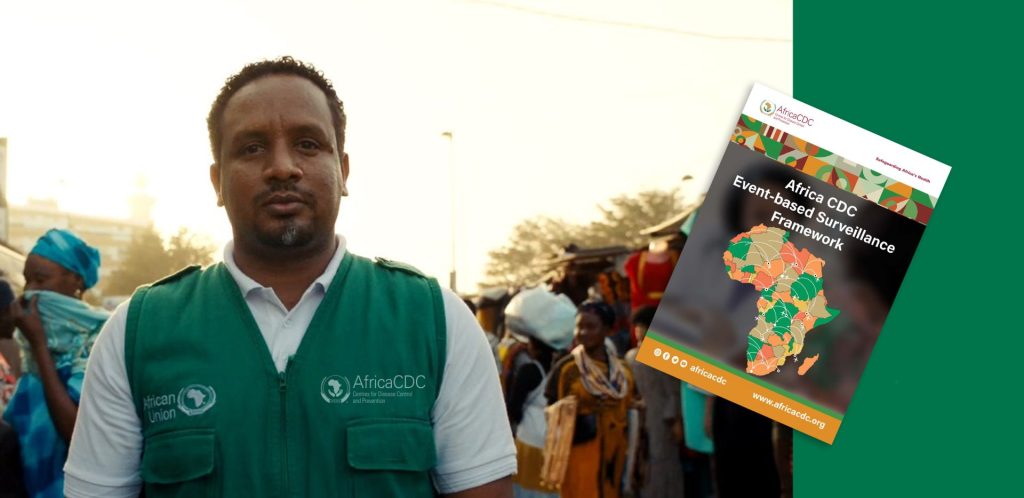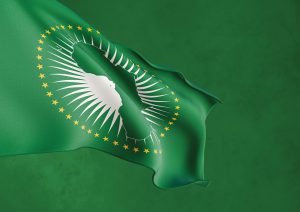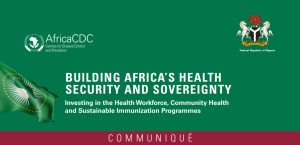Three Southern African countries now have Event-Based Surveillance (EBS) Guidelines—a critical tool for detecting and responding to emerging health risks. Event-based surveillance systems collect and analyse information from diverse sources, including communities, the media, and healthcare workers, to detect unusual health events in real time. They complement traditional indicator-based surveillance and are designed to support rapid public health responses.
Botswana, Namibia, and Zimbabwe were supported in developing their guidelines by the Africa Centres for Disease Control and Prevention (Africa CDC), in collaboration with the World Health Organization (WHO) and the United States Centers for Disease Control and Prevention (US CDC).
The Botswana Event-Based Surveillance Guidelines were launched on 24 June in Gaborone.
“By institutionalising a robust early warning system, the health sector will be empowered to detect signals of potential disease threats at their earliest stages,” said Dr Stephen Modise, MP, Minister of Health and Wellness.
Speaking on Dr Modise’s behalf, Dr Rex Kealebile Segadimo, Acting Secretary for Specialised Health Care, said the launch of these guidelines marks a significant milestone in Botswana’s efforts to strengthen its public health system.
“This will enable the country to assess risks with precision and respond in a science-based manner, preventing threats from escalating into full-blown crises.”
Dr Modise further stated: “The institutionalisation of a robust early warning system will enable us to stay ahead of emerging health risks and respond effectively to protect the health and well-being of our citizens.”
Dr Lul Riek, the Africa CDC Regional Director for Southern Africa, reaffirmed his commitment to supporting Botswana and all AU Member States in operationalising these guidelines. This support will include capacity building, mentorship, digital tools, and regional coordination—as well as fostering peer learning and cross-border collaboration—recognising that no country can achieve health security in isolation.
With these guidelines in place, Botswana is now better equipped to respond quickly and effectively to emerging health threats, ultimately protecting the health and well-being of its citizens.
Officiating the launch in Windhoek, Namibia, also on 24 June, the country’s Minister of Health and Social Services, Dr Esperance Luvindao, noted that EBS plays a critical role in addressing the increasing number of public health emergencies in the country. The new surveillance system is a timely intervention, as the country faces rising risks of communicable diseases such as malaria and cholera, increasingly influenced by climate-related factors.
She described the launch as a true demonstration of Namibia’s commitment to being proactive in disease preparedness. “Real-time detection of public health threats is essential to mitigate the impact of outbreaks, especially in the face of shifting disease patterns,” she said.
The Minister also called for a multifaceted approach to health security and emphasised the importance of establishing and prioritising National Public Health Institutes (NPHIs) to coordinate preparedness, response, and mitigation efforts.
The Ministry of Health and Child Care (MoHCC) in Zimbabwe launched its EBS Guidelines on 18 June in Harare.
“We are not gathered here merely to unveil a policy document,” said Dr Aspect Maunganidze, Secretary for Health and Child Care. “We are here to affirm a national commitment—to declare that the health and safety of every Zimbabwean is our highest priority.”
He explained that the EBS guidelines represent a strategic shift from reactive to proactive preparedness, empowering health authorities to detect early warning signs of public health threats before they escalate.
Ms Batsirai Mbodza, Regional Programme Lead for Africa CDC, emphasised the critical importance of implementation.
“Guidelines alone will not stop outbreaks. The real impact lies in how well they are implemented,” she said. “These tools must reach health workers in clinics, surveillance officers in the field, and community leaders, often the first to sense when something is amiss.”
On behalf of UNICEF, Mr Diop Daouda stressed the need for inclusivity in the country’s surveillance systems.
“Surveillance systems must be inclusive, they must reach the most remote villages, informal settlements, and border communities,” he said, adding: “They must consider gender dynamics, disability, and cultural norms. No signal should go unnoticed, because no life is dispensable.”







